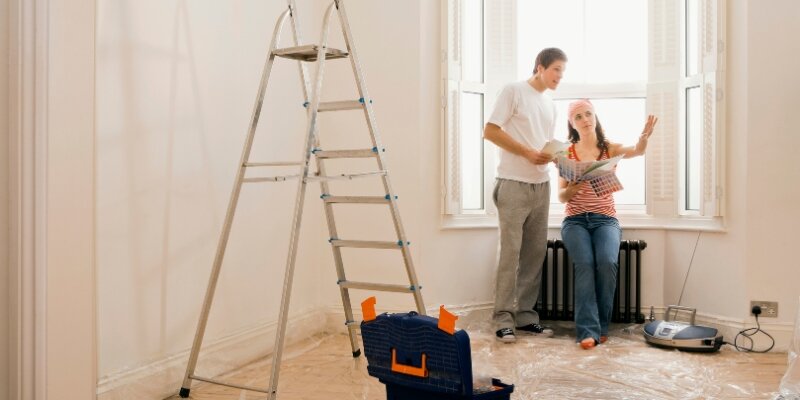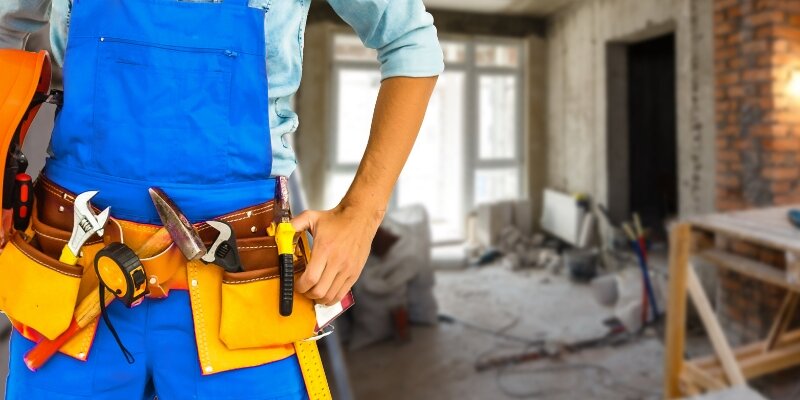
Are you considering selling a house with unpermitted work? Perhaps you’ve recently discovered that some modifications or additions to your property were done without the necessary permits, and now you’re wondering how this might affect your ability to sell. You’re not alone; this is a common concern for many homeowners. In this comprehensive guide, we will delve into all the risks and intricacies of selling a house with unpermitted work, addressing key questions and providing you with valuable insights to navigate this challenging situation.
In Today’s Article:
- Understanding Unpermitted Work
- Common Types of Unpermitted Work
- The Implications of Unpermitted Work
- Assessing the Unpermitted Work
- Options for Selling a House with Unpermitted Work
- Navigating the Sales Process
- FAQ
Understanding Unpermitted Work
Before we delve into the process of selling a house with unpermitted work, let’s begin by understanding what unpermitted work actually means. Unpermitted work refers to any construction, renovation, or modification done on a property without obtaining the required permits from the local government agencies or city’s building department authority. These permits are essential because they ensure that the work complies with safety, zoning laws, and building codes, ultimately protecting both homeowners and future buyers.
Unpermitted work can take various forms, such as:
- Structural Modifications: This includes alterations to load-bearing walls, foundations, or roofs.
- Electrical and Plumbing: Any changes to electrical or plumbing systems without permits.
- Room Additions: Expanding your living space without the proper permits.
- Accessory Structures: Building sheds, garages, or other structures without permits.
- Finished Basements: Converting basements into livable spaces without permits.
Common Types of Unpermitted Work

Unpermitted work can manifest in various forms, often catching many homeowners by surprise. Here are some common examples:
- Unauthorized Plumbing Modifications: Homeowners might undertake DIY plumbing projects or hire unlicensed contractors to make changes, such as rerouting pipes or installing new fixtures, without realizing the necessity of obtaining permits.
- Room Additions and Expansions: Another prevalent type of unpermitted work involves room additions or expansions. Homeowners looking to create more space may construct new rooms, convert garages, or enclose patios, all without the proper permits. These structural changes, if not in compliance with local building codes, can pose significant challenges when it comes time to sell.
- Hidden Electrical Work: Upgrading electrical systems or adding new outlets without permits is not only unsafe but can also complicate property transactions.
Being aware of these common types of unpermitted work is crucial for both sellers and buyers to navigate real estate transactions smoothly.
The Implications of Unpermitted Work

1. Legal and Safety Concerns
Unpermitted work can lead to serious legal and safety concerns. Without the oversight of permits, there’s no guarantee that the work was done correctly or that it complies with building codes or local ordinances. This could pose significant safety hazards for both the current occupants and future homeowners.
2. Financing Challenges
When potential buyers seek financing for a property, lenders often require an appraisal and inspection. Unpermitted work can raise red flags during these processes, potentially jeopardizing the loan approval. Lenders are concerned about the property’s value and safety, and they may hesitate to provide financing if there is unpermitted work present.
3. Disclosures and Liability
Sellers are legally obligated to disclose any known issues with the property. Failing to disclose unpermitted work by previous owners can result in legal repercussions. Moreover, if the buyer discovers unpermitted work after the sale, they may have grounds for legal action against the previous owner or seller.
Seeking Retroactive Permits
Seeking retroactive permits is a potential solution for regularizing unpermitted work and bringing a property into compliance with local regulations. The retroactive permit process typically involves the following steps:
- Documentation: Start by gathering all relevant documents related to the unpermitted work, including any original plans or specifications, photographs, and descriptions of the work performed.
- Consultation: Reach out to your local building permit office to discuss the situation and inquire about the possibility of retroactive building permits. They will guide you on the specific requirements and procedures for your jurisdiction.
- Inspection: A building inspector may visit your property to assess the unpermitted work. They will check if it complies with current building codes and safety standards.
- Plan Modifications: If the unpermitted work doesn’t meet current standards, you may need to modify it to ensure compliance. This may involve making necessary changes to structural elements, electrical systems, or plumbing.
- Permit Application: Once the modifications are complete, you can apply for the proper permits. Be prepared to submit detailed plans, descriptions of the work done, and any required fees.
- Inspection and Approval: The building authority will conduct a final inspection to ensure that the work now meets the necessary standards. Upon approval, you will receive the retroactive building permits.
Seeking retroactive building permits can be a complex process, and success of retroactive permit depends on various factors, including the nature of the unpermitted construction work and local regulations. However, it can provide a legal pathway to regularize unpermitted work and alleviate concerns for both sellers and buyers.
Other Articles You Might Enjoy:
Assessing the Unpermitted Work

Before proceeding with selling your house, it’s essential to assess the scope and impact of the unpermitted work. Here’s how you can do it:
1. Hire a Professional Inspector
Consider hiring a qualified home inspector or structural engineer to thoroughly examine the unpermitted work. They can provide a detailed report on the work’s quality and safety, helping you understand the potential risks.
2. Consult with a Local Building Authority
Reach out to city inspectors or your local building authority to discuss the unpermitted work. They can provide guidance on bringing the property into compliance with current building code, and may be able to offer retroactive building permits in some cases.
3. Get Repair and Remediation Quotes
Obtain quotes from experienced contractors to address any issues identified during the inspection. This will help you understand the potential costs involved in rectifying the unpermitted work.
Options for Selling a House with Unpermitted Work
Once you’ve assessed the situation, you have a few options when it comes to selling your house with unpermitted work:
1. Correct the Issues
If the unpermitted work is relatively minor, you may choose to correct the issues before listing the property. This involves obtaining the necessary permits, bringing the work up to code, and ensuring it meets safety standards.
2. Disclose and Sell “As-Is”
Another option is to disclose the unpermitted work to potential buyers and sell the house “as-is.” In this scenario, buyers are aware of the issues, and it’s up to them whether they want to proceed with the as is purchase.
3. Negotiate with Buyers
You can also negotiate with potential buyers, offering to cover the costs of correcting the unpermitted work as part of the sale agreement. This approach can be appealing to buyers who might otherwise be deterred by the prospect of dealing with unpermitted modifications.
4. Price Adjustment
If correcting the unpermitted work isn’t financially viable, you can adjust your asking price to reflect the necessary repairs or renovations that buyers will need to undertake after the purchase.

TX Cash Home Buyers Gives Multiple Offer Options!
Unlock the potential of your home with our multiple offer options. Discover what you qualify for and make informed decisions with confidence.
Costs Associated with Correcting Unpermitted Work
Understanding the potential costs involved in rectifying unpermitted work is paramount for both sellers and buyers. These costs can vary widely depending on several factors:
- Scope of the Work: Minor unpermitted alterations, such as adding a new electrical outlet or updating plumbing fixtures, may cost a few hundred to a couple of thousand dollars. However, extensive structural changes or room additions can range from several thousand to tens of thousands of dollars or more.
- Local Building Codes: Local building codes and regulations can significantly impact costs. If the unpermitted work deviates significantly from current codes, it may require extensive modifications, further increasing expenses.
- Extent of Necessary Repairs or Modifications: If the unpermitted work was done poorly or unsafely, it might necessitate costly repairs or even complete redoing of the work. These additional expenses can add up quickly.
Expenses may include:
- Hiring licensed contractors, which can cost anywhere from $50 to $150 or more per hour, depending on the trade and location.
- Obtaining the required permits, which can range from a few hundred dollars to over a thousand dollars, depending on the complexity of the project.
- Addressing any structural, electrical, or plumbing issues, which can vary greatly in cost based on the specific repairs needed.
Sellers may consider covering these costs as an incentive to prospective buyers, making the property more appealing despite the presence of unpermitted work. This approach can streamline the process and mitigate concerns that might otherwise deter prospective buyers.
Navigating the Sales Process

Now that you’ve decided on the approach to take, it’s time to navigate the sales process. Here are some essential steps to consider:
1. Work with a Real Estate Agent
Partnering with an experienced local realtor is crucial when selling a house with unpermitted work. They can help you navigate the legalities, market your property effectively, and find prospective buyers.
2. Disclose the Unpermitted Work
Be transparent and disclose unpermitted work with both your real estate agent and potential buyers. Full disclosure is not only ethical but also a legal requirement in many jurisdictions.
3. Negotiate the Sale
During negotiations, be prepared to address questions and concerns from buyers regarding the unpermitted work. Having repair quotes and a plan in place can be reassuring to buyers.
4. Allow for Due Diligence
Provide ample time for buyers to conduct inspections and due diligence. They may want to bring in their own inspectors to assess the property thoroughly.
5. Consider an Escrow Account
In some cases, sellers and buyers may agree to set up an escrow account to cover the costs of bringing the property into compliance after the sale. This can provide peace of mind to both parties.
The Bottom Line-Selling house with unpermitted work
Selling a house as is or with unpermitted work can be a complex and challenging process, but it’s not impossible. By understanding the implications, assessing the work, and taking the right steps, you can successfully navigate this situation. Whether you choose to correct the issues, sell “as-is,” negotiate with buyers, or adjust the price, transparency and cooperation are key to a successful transaction. Remember to consult with professionals, including real estate agents and inspectors, to guide you through the process and ensure a smooth sale. With the right approach, you can sell your property and move forward with confidence.

Why Sell Your House To TX Cash Home Buyers?
1. You Pay Zero Fees
2. Close Quickly or the date of your choice
3. Guaranteed Offer
4. No repairs required, we buy as is
5. Less Hassles!
Call Now (281) 595-7550 Send Text
FAQ
1. Can I sell my house with unpermitted work?
- Yes, you can sell a house with unpermitted work, but you must disclose it to potential buyers. Buyers may choose to proceed with the sale “as-is,” negotiate repairs, or adjust the price.
2. What are the risks of selling a house with unpermitted work?
- Risks include legal consequences for nondisclosure, financing challenges for buyers, and potential decreases in property value. It’s essential to address these issues proactively.
3. Can unpermitted work be legalized with retroactive permits?
- In some cases, unpermitted work can be legalized by obtaining retroactive permits. This process involves documentation, inspections, and modifications to ensure compliance with building codes.
4. How does unpermitted work affect the sale price of a property?
- Unpermitted work can lower a property’s sale price, as buyers may perceive it as a risk. However, sellers can mitigate this by addressing the work, offering repairs, or adjusting the price accordingly.
Disclaimer:
The content provided on this blog is for informational purposes only. We are not attorneys or tax professionals. For personalized legal or tax advice, please consult with a qualified professional.
Written by Lisa Martinez, Founder of TX Cash Home Buyers

About The Company
TX Cash Home Buyers helps Texas homeowners sell quickly and simply — even in tough situations like repairs, inherited homes, or financial stress. Founded by Lisa Martinez, we’re known for our local experience, fair offers, and commitment to guiding sellers through off-market sales with clarity and care.





